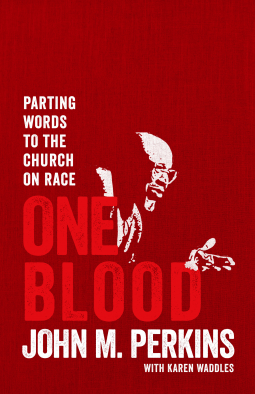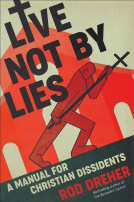
One Blood
Parting Words to the Church on Race and Love
by John M Perkins
This title was previously available on NetGalley and is now archived.
Send NetGalley books directly to your Kindle or Kindle app
1
To read on a Kindle or Kindle app, please add kindle@netgalley.com as an approved email address to receive files in your Amazon account. Click here for step-by-step instructions.
2
Also find your Kindle email address within your Amazon account, and enter it here.
Pub Date Apr 03 2018 | Archive Date Apr 03 2018
Talking about this book? Use #OneBlood #NetGalley. More hashtag tips!
Description
Dr. Perkins’ final manifesto on race, faith, and reconciliation
We are living in historic times. Not since the civil rights movement of the 60s has our country been this vigorously engaged in the reconciliation conversation. There is a great opportunity right now for culture to change, to be a more perfect union. However, it cannot be done without the church, because the faith of the people is more powerful than any law government can enact.
The church is the heart and moral compass of a nation. To turn a country away from God, you must sideline the church. To turn a nation to God, the church must turn first. Racism won't end in America until the church is reconciled first. Then—and only then—can it spiritually and morally lead the way.
Dr. John M. Perkins is a leading civil rights activist today. He grew up in a Mississippi sharecropping family, was an early pioneer of the civil rights movement, and has dedicated his life to the cause of racial equality. In this, his crowning work, Dr. Perkins speaks honestly to the church about reconciliation, discipleship, and justice... and what it really takes to live out biblical reconciliation.
He offers a call to repentance to both the white church and the black church. He explains how band-aid approaches of the past won't do. And while applauding these starter efforts, he holds that true reconciliation won't happen until we get more intentional and relational. True friendships must happen, and on every level. This will take the whole church, not just the pastors and staff.
The racial reconciliation of our churches and nation won't be done with big campaigns or through mass media. It will come one loving, sacrificial relationship at a time. The gospel and all that it encompasses has always traveled best relationally. We have much to learn from each other and each have unique poverties that can only be filled by one another. The way forward is to become "wounded healers" who bandage each other up as we discover what the family of God really looks like. Real relationships, sacrificial love between actual people, is the way forward. Nothing less will do.
Available Editions
| EDITION | Other Format |
| ISBN | 9780802418012 |
| PRICE | $15.99 (USD) |
| PAGES | 192 |





